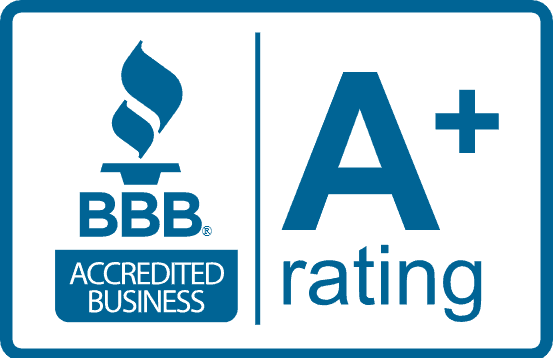Dogs may be our best friends, but they are also animals with teeth that can cause a lot of harm if the dog decides someone is not a friend. This is especially true with children, who often don't know better than to pet a strange dog. What can you do when you or your child is bitten and seriously injured by a dog in Montgomery County, TN? The first thing you should do is contact our experienced Clarksville dog bite attorney at GET PETE!
Understanding Dog Bite Liability in Tennessee
Most states operate under one rule regarding dog bites: either the owner is liable the first time the dog bites (strict liability), or they are not liable unless they were aware that the dog was aggressive (one-bite rule). In Tennessee, however, we operate under both rules, which applies depending on the bite's circumstances.
Generally speaking, if the dog is loose when it bites someone, its owner is strictly liable for damages because they were not in control of the animal. However, if the bite occurred on the owner's property and the owner had no reason to believe that the dog was aggressive, they might not be liable for injuries, even if the victim was a child. If you or your child was seriously injured, we urge you to talk to our legal team to help determine which law applies and whether you are owed damages.

When Strict Liability Applies
Tennessee dog owners must keep their animals under reasonable control at all times and to prevent them from running at large. The strict liability law applies if a dog is loose when it attacks a person. This law holds dog owners responsible for injuries caused by their dogs, regardless of whether the owner knew or should have known about the dog's dangerous tendencies. This law applies to all types of injuries caused by dog bites or attacks, including physical injuries, emotional trauma, and property damage.
In an example of a strict liability case, Mary is walking her dog on a leash when her neighbor's dog, which has no history of aggressive behavior, jumps over the fence and attacks Mary and her dog, causing injury to both of them. Mary can recover damages from her neighbor under Tennessee's strict liability law because the neighbor failed to keep the animal under control. It does not matter that the dog had never bitten anyone before.
The One-Bite Rule Applies When the Dog is on its Own Property
Tennessee also has a one-bite rule, which means that a dog owner is not liable for injuries caused by their dog's first bite or attack unless the owner knew or should have known about the dog's dangerous tendencies. This rule only applies if the victim of the attack is on property belonging to the dog's owner. In other words, if you are visiting someone who has a dog that has never shown aggression before and the dog bites you, the owner is likely not liable for the dog's actions. However, after the first bite or attack, the owner is presumed to have knowledge of the dog's dangerous propensities and can be held liable for any subsequent bites or attacks.
For example, John adopts a dog from a shelter and brings it home. The dog has no history of aggressive behavior, but one day, at a barbecue in his backyard, the dog bites a child who tries to pet it. Since this is the first aggressive act that John is aware of, he probably will not be liable for the first bite under Tennessee's one-bite rule, but he may be held liable for any subsequent bites.
Exceptions to Owner Liability Laws
Many dog bite cases come down to a he-said-she-said scenario, and owners have a number of exceptions they can claim to protect themselves from liability. These include:
- The victim was trespassing on the owner's private property.
- The dog was protecting the owner from possible harm.
- The dog was confined in an enclosure.
- The victim teased or provoked the dog.
These defenses will require the dog's owner to produce evidence to prove the claim, and the victim will need a legal representative to counter the evidence.
Common Types of Dog Bite Injuries in Clarksville
We like to think of dogs as our friends; however, dogs are animals with strong jaws and sharp teeth. When they decide a person is a threat, they can do some serious damage, especially if the victim is a child. Common injuries caused by aggressive or protective dogs include the following:
- Puncture wounds. Dog bites often result in puncture wounds caused by the canine's teeth penetrating the skin. These injuries can be deep, increasing the risk of infection if not promptly and properly treated.
- Lacerations and tears. The force of a dog bite can cause lacerations and tears in the skin, muscles, and underlying tissues. Severe lacerations may require surgical intervention and leave lasting scars.
- Soft tissue injuries. Soft tissue injuries, such as bruising and contusions, are common after a dog attack. These injuries can lead to pain, swelling, and long-term discomfort.
- Fractures and broken bones. The powerful jaws of certain dog breeds can cause fractures and broken bones in the victim. Children, with their developing bones, are particularly susceptible to these types of injuries.
- Facial injuries. Facial injuries are prevalent in both children and adults after a dog attack. These injuries may include bites to the nose, lips, and eyes, often resulting in disfigurement and requiring extensive reconstructive surgery.
- Nerve damage. Dog bites can damage nerves, leading to loss of sensation, weakness, or paralysis in the affected area. Nerve injuries can have long-term consequences and may necessitate ongoing medical care.
- Infection. Due to the bacteria present in a dog's mouth, bite wounds are prone to infection. Children, with their less developed immune systems, may be more susceptible to infections that can lead to complications if not promptly treated.
- Emotional trauma. Beyond physical injuries, dog attacks can cause emotional trauma, particularly in children. Fear, anxiety, and post-traumatic stress disorder (PTSD) may manifest and require psychological intervention.
- Scarring and disfigurement. Severe bites can result in scarring and disfigurement, affecting the victim's physical appearance and potentially leading to long-term self-esteem and psychological issues.
- Crush injuries. Some larger dog breeds have strong jaws capable of causing crush injuries. These injuries can damage muscles, blood vessels, and bones.
- Knockdown injuries. In cases where a large or aggressive dog knocks a person down during an attack, additional injuries such as concussions, head trauma, or fractures may occur.
- Fatalities. While relatively rare, fatal dog attacks can occur, especially when children or vulnerable adults are involved. Fatalities often result from severe injuries, massive bleeding, or complications such as infection.
Dog Breeds That Are Often Considered Aggressive
Regardless of breed, any dog can exhibit aggressive behavior if not properly socialized and handled, but certain breeds are associated with a higher incidence of dog bites. While these breeds are probably not inherently more aggressive, they are often chosen by owners looking for intimidating, protective dogs and encouraging them to be that way.
Popular breeds that may be more likely to bite because of their natural temperament include:
- Chihuahua. Often poorly trained and socialized because of their small size, chihuahuas are fiercely loyal to their owners and won't hesitate to bite when they perceive a threat.
- Dachshund. With a natural inclination as a guard dog, dachshunds that are not properly restrained can attack to defend their owner or territory.
- Chow chow. These dogs have a high prey drive and don't easily accept strangers and other dogs. They can respond to new situations aggressively and are large enough to do considerable damage.
- Doberman pinschers. Dobermans, often used as guard dogs, may display protective behaviors, especially if not adequately socialized.
- Rottweilers. Rottweilers are extremely territorial and protective. These traits, combined with their size and strength, make them a serious threat to visitors.
- Pit bulls. This category includes many mixed-breed terriers that are, unfortunately, often raised to be aggressive guard dogs.
It's crucial to emphasize that various factors influence a dog's behavior, and aggression is not solely determined by breed. Any dog that has not been properly socialized to accept strangers and other dogs, has not been trained to respond to commands, or has been neglected or abused by its owner can become a dangerous threat.
Why Children Are the Most Likely Victims of Dog Bites
Children are particularly vulnerable to dog bites for several reasons. In many cases, the child's actions cause the dog to react. However, owners owe a particular duty of care to children regarding their dogs. Children may not fully understand how to approach or interact with dogs, and their small size makes them more vulnerable to serious injuries.
Some of the reasons children are bitten by dogs more often than adults include the following.
- Lack of understanding. Children, especially younger ones, aren't clued into a dog's behavior and body language. They might misinterpret a dog's signals or not recognize signs of distress, potentially putting them in situations where a dog feels compelled to defend itself.
- Size and eye level. Children are often at eye level or below with dogs, making direct eye contact more likely. In dog communication, prolonged direct eye contact can be perceived as a threat or challenge, increasing the risk of defensive behavior from the dog.
- Unintentional provocation. Children may unknowingly provoke a dog by engaging in behaviors that can be perceived as threatening, such as sudden movements, loud noises, or attempts to take away the dog's food or toys. Dogs may react defensively when they feel their space or possessions are being encroached upon.
- Excitement and energy. Children are often more energetic and excitable than adults. While this exuberance is natural, it can be overwhelming for some dogs, leading to reactive behavior. High-pitched voices and sudden movements can make a dog feel stressed or threatened.
- Unpredictable behavior. Children's behavior can be unpredictable, which can make some dogs uncomfortable. Dogs may become anxious or defensive when faced with erratic movements or loud, sudden noises.
- Lack of supervision. In many instances, dog bites occur in the absence of proper supervision. Leaving a child alone with a dog, even one familiar to the family, increases the risk of unexpected interactions that could result in a bite.
- Inexperience in recognizing warning signs. Even when a dog exhibits warning signs of stress or discomfort, children may not recognize these signs or may not understand their significance. Ignoring or misinterpreting these signals can lead to a dog resorting to defensive behaviors.
- Natural curiosity. Children are naturally curious, and their curiosity may lead them to approach or interact with a dog without considering the dog's comfort level. Dogs may react defensively when they feel overwhelmed or invaded.
Regardless of what led to a child being bitten by a dog, the child usually cannot be held responsible, especially if it is a very young child. It may be a different story with older children who purposely provoke a dog, and the dog is forced to defend itself, but you owe it to your child to consult with a dog bite attorney to understand your options.
Why It’s Important to Hire an Experienced Dog Bite Attorney in Clarksville
As we detailed above, dog bite laws in Tennessee are complex and can drag on if you don’t know enough. For instance, the extent of a dog owner's liability depends on where the interaction between the dog and the victim took place.
But just because someone is a personal injury lawyer does not mean they are qualified to represent you in an animal attack case. After all, you wouldn’t hire an electrician to fix your plumbing. Just because they have trade skills to install and repair equipment, doesn’t mean they can do both. You need to make sure whichever injury attorney you hire to represent you has experience with dog bites specifically.
.jpg)
How to Find the Best Clarksville Dog Bite Lawyer?
Who’s to say there is a “best” dog bite lawyer? However, certain things can make you stand out above your competition. Below are a few things you should consider before hiring an attorney for your dog bite case:
- Reviews. Reading testimonials from previous clients can go a long way to determining whether or not an attorney would be a good fit for you. It is important to see how they interacted with people in the same boat as you.
- Awards and Accolades. While there may not be a definitive way to determine the best dog bite lawyer in Clarksville, generally, the public or other attorneys can influence popular opinion by voting or rating in public forums, like Clarksville’s Best, or Martindale-Hubbell peer reviews.
- Results. What better way to gauge a successful settlement than to see case results from past clients?
- Interviews. Feeling comfortable in your representation can go a long way. Interview a few potential candidates when trying to find the best Clarksville dog bite lawyer. Find someone that can relate to you, someone that will make you calm and confident.
Pete Provides Compassionate Representation to Dog Bite Victims
Most of the dog bite victims we help are children. Children should not be forced to live with emotional damage and physical scarring without compensation from the human responsible for the harm that was done to them.
When you GET PETE! to help with your dog bite injury claim, you will get a knowledgeable, committed legal team who will fight for justice. Fill out our online contact form by clicking the button above or calling 877-GET-PETE immediately!













